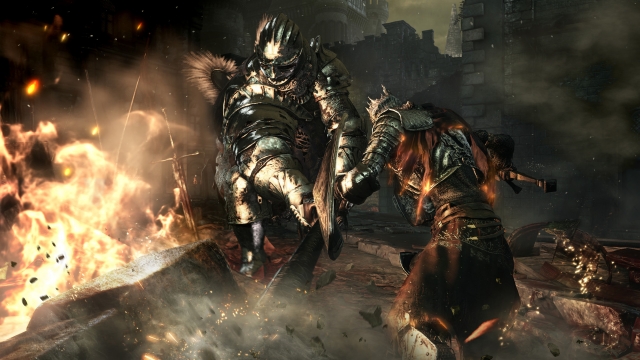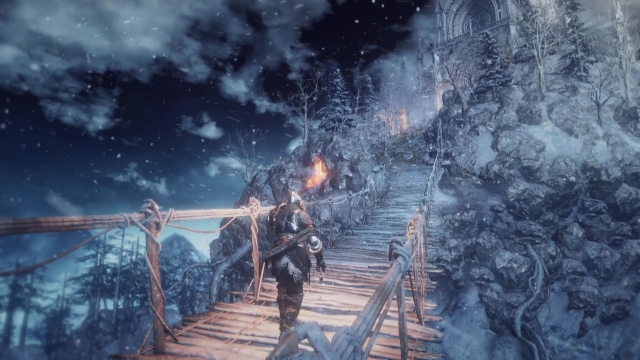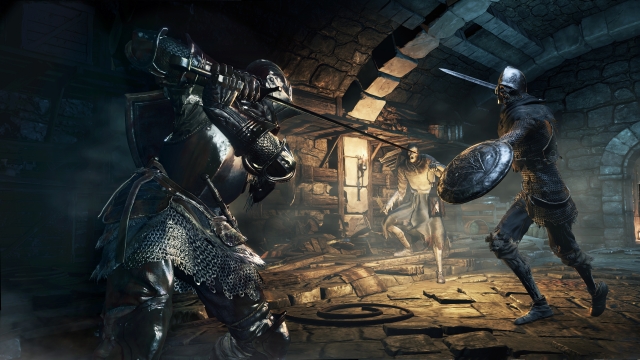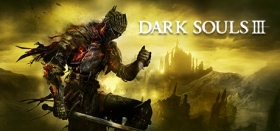
How Dark Souls III Cemented My Love For The Souls Genre
“Dark Souls is a bit like marmite, you’ll either love it or you’ll hate it.” That’s the response I received from a Souls-fan friend after enquiring about the series. It was always a series that piqued my interest. Admittedly, though, the thought of dying over and over again wasn’t all that enticing. After all, that was my summation of the Dark Souls series back then. Sure, there is a lot of dying over and over again, but it’s so much more than that.
My foray into the Souls genre began with Dark Souls II: Scholar of the First Sin. It was a gruelling experience. Nevertheless, I came to learn an important principle: every death represents a lesson learned. Therein lies the crux of what makes the Souls genre so addicting. Souls games find a way to make difficulty appealing. Every death incurred is a chance to learn from your errors and improve your skill. If you want to “git gud” be prepared to die but also be prepared to learn. Realising your own mistakes and correcting them is how you overcome the steep learning curve in Souls games.

After conquering Dark Souls II, I was on a high. Souls games had always been too intimidating to me; I never expected I’d even give one a chance, let alone beat it. “Where do I go from here?” I asked myself. At the time, the first Dark Souls hadn’t been remastered. Nor did I still own one of the consoles it originally released on. Begrudgingly, I skipped playing the first Dark Souls and instead resorted to watching a lore video online. After which, I was ready to tackle the climactic Dark Souls III.
Dark Souls III, the crescendo of the trilogy, cemented my new-found love for the Souls genre. You play as a protagonist whose goal is to find and return the five Lords of Cinder to their thrones at Firelink Shrine in order to link the flame again. The protagonist is known as an Unkindled. If that sounds complex, that’s because it is. Dark Souls games have a complex, subtle, and deceitfully deep pool of lore. The story and lore is never straightforward. Instead, you must take up the mantle of piecing it together through NPC interactions, item descriptions, cinematics, dialogues, and environments.

Nothing in the world of Dark Souls is spoon-fed to you. What makes Dark Souls III and its predecessors so alluring is the knowledge that discovering lore is a reward for exploration. You’ll have to go off the beaten path if you ever hope to have a modicum of understanding of the lore. Believe me, it’s not worth cheaping out and relying on YouTube videos. A significant aspect of the game is exploration and discovering hidden secrets. Whether that’s through exhausting dialogue options with an NPC, checking every dark corner of an area (there’s plenty of those), it’s far more rewarding to piece things together on your own.
In hindsight, as a latecomer to the Dark Souls games, I might judge the older two too harshly. For their time, I’m sure they were just as impressive then as Dark Souls III was to me in 2016. Nevertheless, Dark Souls II simply did not awe me the way Dark Souls III managed to. The former whetted my appetite but the latter satiated it. Everything in the last instalment of the trilogy is polished to near perfection. Animations are smoother, environments are grander, enemies are more grotesque; it all feels like a culmination of systems that FromSoftware spent the last two games fine-tuning.

Disappointingly, Dark Souls III was technically hindered by the consoles it released on. The game was stuck at 30 FPS on both Xbox One and PlayStation 4, exacerbated further by frame rate drops. In a game where precision in timing and actions is of paramount importance, this was far from ideal. On PlayStation 5, however, Dark Souls III now runs at a solid 60 FPS on console via backwards compatibility boost. This boost alone makes Dark Souls III well worth replaying in time for its fifth anniversary for console gamers. The FPS boost really is game-changing, especially so for a Souls game. If you’re on PC, and thus have enjoyed the luxury of 60 FPS games for many years now, the sheer quality of Dark Souls III still makes it well worth a replay.
My parting advice is this: dying is a natural part of life... and Dark Souls. There’s a preconceived notion many gamers hold that the Souls games are too difficult for them. I know this because I was one of them. Sure, I won’t lie to you, they’re difficult games but they’re far from the Sisyphean task people fear them to be. In the Dark Souls series, death is a teacher. If you’re simply willing to learn, you’ll be engrossed in a world that culminates in the brilliantly ambitious Dark Souls III. Here’s to the final instalment in the genre-defining series - happy fifth anniversary to Hidetaka Miyazaki, the FromSoftware team, Bandai Namco, and to the ever faithful Dark Souls fans.











COMMENTS